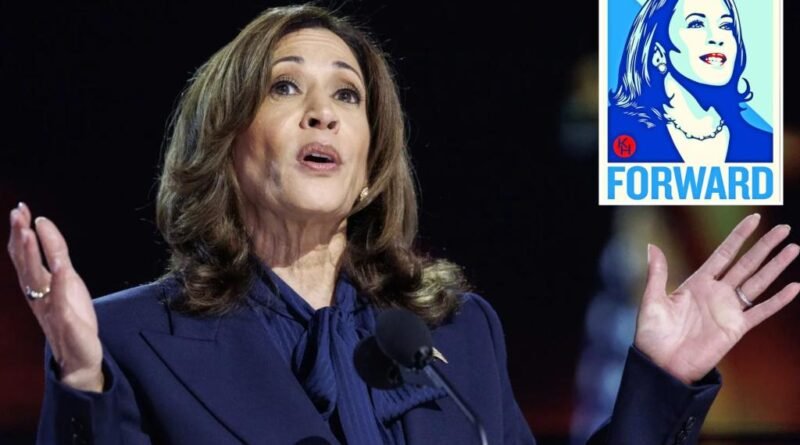Comparing Kamala Harris’s Media Coverage to Barack Obama’s 2008 Campaign: A Case of Déjà Blue
A year into Barack Obama’s presidency, Sarah Palin, a former Alaska governor and John McCain’s 2008 running mate, mockingly asked a Tea Party gathering a question: “How’s that hopey, changey stuff working out?”
The roomful of conservatives howled with laughter because by then, Obama’s dreamy campaign motto of “Hope and Change” had been replaced by hard policy lurches to the far left.
The Palin question is a piece of history 2024 voters should keep in mind as they assess Kamala Harris.
The parallels between then and now are striking.
Like Obama, the Democrats’ current nominee has been maddeningly elusive about what she would do as president.
Yet she is nonetheless riding a wave of enthusiasm that could carry her to the White House.
As they did with Obama, big media outlets are helping to promote her candidacy rather than vetting her for voters.
Take recent top headlines in The New York Times: On Friday, beside a huge flattering photo of her, the newspaper declared: “Harris Making History While Putting Her Faith In the Art of the Possible.”
On Saturday, the same space said: “Harris Faces Challenge: Turning Joy Into Votes.”
A Washington Post opinion piece on Harris’ husband carried this headline — “Doug Emhoff: modern-day sex symbol.”

This isn’t journalism.
It’s boosterism, and it’s disgraceful.
For Donald Trump, the consequences are clear: his opponent is Hope and Change All Over Again.
Or, as Palin might put it, he’s up against Hopey-Changey 2.0.
In fact, Harris has been even more vague than Obama was in 2008.
He at least had to run in and win numerous primaries against Hillary Clinton and couldn’t hide from debates, interviews and press conferences.
Harris, on the other hand, struck political gold with the boss-led, backroom deal that handed her the nomination without requiring her to win a single delegate on her own.
One result is that she’s been able to get away with sweeping promises of all the good she will do on day one without revealing crucial details, including price tags.
The credibility problems with this approach are obvious, starting with the fact that she’s been vice president for three and one-half years in an unpopular administration.
A base-line question is what she would do differently than what she and President Biden did together.
If she has better ideas, why wait?
Why not persuade Biden to implement them now?
As for the more extreme policies she pushed as a senator and as a candidate for president in 2020, such as a ban on fracking and ending private health insurance, they are no longer operative, her aides insist.
Light on the specifics
But efforts to get explanations about why she changed and details about where she stands now have been futile because she hasn’t given a single interview or held a press conference since replacing Biden on the ticket.
Harris’ one stab at a specific policy was a speech where she promised action on “price gouging.”
When even Dem economists denounced the idea as destructive price controls, she went silent.
Her convention speech was forceful and well-delivered, but offered little more than a litany of platitudes, such as a promise to “chart a new path forward” and “be a president for all Americans.”
Apparently out of ideas but not yet out of time, she added this one: “The future is always worth fighting for.”
In another Obama parallel, Harris is biracial, and the woke media that protected him is far more woke now and more determined to protect her by declaring it racist and sexist even to question her readiness.
It strikes me that there are only two possible explanations for her continuing refusal to seriously engage on policy plans.
Neither offers much reason to hope she would be a successful commander in chief.
Either she doesn’t have clear ideas she would pursue, or she does — but doesn’t want the public to know what they are.
Although it’s possible she hasn’t had time to formulate detailed proposals because she was riding on Biden’s tattered coattails until recently, the cynic in me is more inclined to believe the alternative: That she’s hiding the ball because her instincts are so far loopy-left that exposure would hand the election to Trump.
That possibility is related to the decision of Robert F. Kennedy Jr. to endorse the former president. Kennedy, in a mostly compelling speech Friday where he explained his reasons to back a Republican, cited the way Democrats buried him in lawsuits to keep him off state ballots and refused to hold debates where Biden could be challenged.
He decried the administration’s use of Big Tech to censor news and opinions it doesn’t like.
He also said Biden had rebuffed his requests for a meeting and that Harris wouldn’t return his phone calls.
It’s also worth noting that despite the Kennedy family’s tragic history, the White House rebuffed Kennedy’s repeated requests for Secret Service protection until after the assassination attempt against Trump.
Beware Don F. Kennedy
The result of all those unforced errors is that Harris now faces the possibility that Kennedy’s support for Trump could be the difference in one or more of the battleground states, and thus swing the final outcome.
Andrew Yang, the tech entrepreneur who ran for mayor in New York and now heads the minor Forward Party, said in a statement that the Kennedy move means “Trump’s odds of victory just went up” because “the most significant independent presidential candidate of the last twenty years just joined his team.”
Citing polling that had Kennedy getting 7% of a general election vote in Nevada, 6% in Wisconsin, 5% in Arizona and Michigan, 4% in Georgia and 3% in Pennsylvania, Yang noted that “the margin between Kamala Harris and Donald Trump is well below those numbers in all of those states.”
Although Labor Day traditionally marks the start of the home stretch, early voting in a dozen or so states means the candidates have no time to waste and little room for error.
The one debate they agreed to is scheduled for Sept. 10 in Philadelphia, though Trump wants two more.
The veep candidates, Ohio’s GOP Sen. J.D. Vance and Minnesota’s Dem Gov. Tim Walz, are set to square off on Oct. 1.
One potentially decisive event is the sentencing of Trump on Sept. 18 for the guilty verdict in the phony Manhattan bookkeeping case.
That case, like the three other pending ones brought by Democrats, was concocted purely to interfere with the election and keep him out of the White House.
Now that it’s crunch time, Trump’s lawyers have reasonably asked to delay sentencing until after the election.
The prosecutor, Manhattan District Attorney Alvin Bragg, surprisingly didn’t object, saying he would defer to the judge.
That gives the judge, Juan Merchan, whose daughter is a Democratic operative who previously worked for Harris, a chance to partially redeem his reputation by agreeing to postpone the sentencing.
Any other decision will permanently disgrace him and the entire New York court system.



